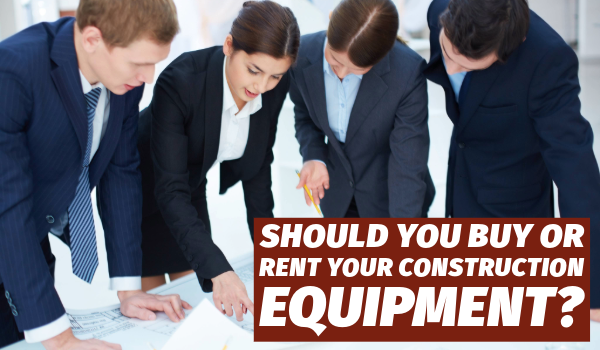The decision between buying or renting construction equipment is a critical consideration for contractors and construction firms. It can significantly impact your business’s financial health, operational efficiency, and flexibility. The right choice depends on several factors, including your company’s size, frequency of projects, and specific equipment needs. Let’s take a closer look at the pros and cons of each option to help you make an informed decision.
Pros and Cons of Buying Construction Equipment
Buying construction equipment can be a lucrative investment for businesses with a continuous flow of projects. Ownership means equipment is always available, potentially saving time and boosting productivity. Moreover, in an industry that comprises roughly 13% of global GDP, according to Exploding Topics, having readily available machinery can give you a competitive edge. However, the initial costs of heavy equipment sales may be steep, and maintenance expenses add up over time, necessitating careful financial planning.
Pros and Cons of Renting Construction Equipment
Renting equipment offers a high degree of flexibility for businesses that deal with varied project demands. It allows you to access the latest technology and machinery without the financial burden of ownership. Renting can also be particularly advantageous for smaller firms or startups that might not have enough projects to justify the purchase. Additionally, rental fees are typically tax-deductible as operational expenses, offering a potential advantage over asset ownership. However, repeated rental costs can add up, and in some cases, buying equipment is more economically viable.
Considering the Frequency of Use
An important factor to consider is the frequency of equipment use. If specific tools are only needed sporadically, renting is often the more cost-effective option. It eliminates the concerns associated with depreciation and storage costs that inevitably come with ownership. However, if critical equipment is required on a regular basis, owning it may ensure availability and long-term savings, effectively reducing per-use costs over time.
The decision to buy or rent construction equipment depends on multiple factors such as project frequency, financial capacity, and operational flexibility. Both options have their merits, with buying being ideal for continuous and predictable use, while renting offers adaptability and access to the latest technology. By weighing these pros and cons, you can choose the path that aligns best with your business strategy and goals. If you’re ready to start looking into heavy equipment sales or rentals, contact Sync Aggregate today to learn more about our available models.

